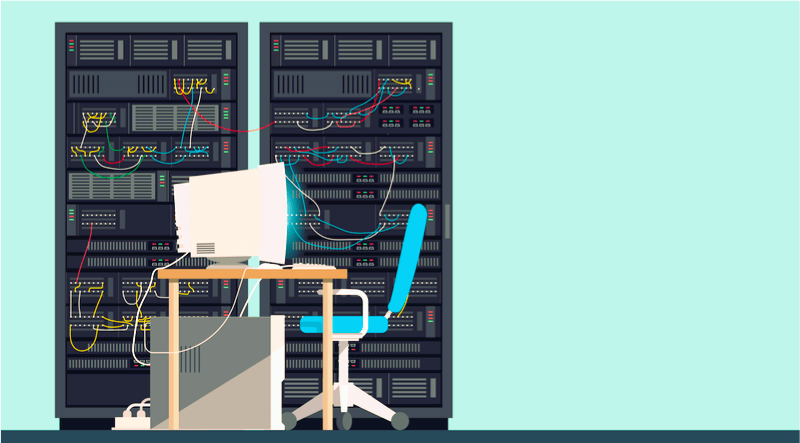In today’s digital age, website security is of paramount importance. Websites are often the face of a business or organization, and they play a crucial role in attracting customers, providing information, and conducting transactions. However, with the increasing sophistication of cyberattacks, it’s essential to understand that the choice of hosting provider and the practices you implement can significantly impact the security of your website. This article explores the vital role of hosting in website security and provides best practices to help you safeguard your online presence.
The Hosting-Website Security Connection
Your choice of hosting provider and the type of hosting service you use have a direct influence on the security of your website. Here’s how hosting impacts website security:
- Server Infrastructure: Hosting providers manage the servers that host your website. The security measures they have in place, such as firewalls, intrusion detection systems, and regular server updates, are critical to protecting your website from external threats.
- Data Center Security: The physical security of the data center where your hosting provider stores its servers is crucial. Data centers should have strict access controls, surveillance, and environmental controls to prevent unauthorized physical access or damage.
- Uptime and Availability: Hosting providers with high availability and uptime guarantees ensure that your website remains accessible to users. Downtime can be exploited by attackers, and a reliable hosting service helps mitigate this risk.
- Backup and Recovery: Hosting providers often offer backup and disaster recovery services. Regular backups are essential for recovering your website in case of data loss or cyberattacks.
- Network Security: Hosting providers manage the network infrastructure that connects your website to the internet. Robust network security measures protect against distributed denial of service (DDoS) attacks and unauthorized access.
Now that we understand the hosting-website security connection, let’s explore best practices for ensuring the security of your website through your hosting provider:
Best Practices for Website Security Through Hosting

- Choose a Reputable Hosting Provider: Start by selecting a hosting provider with a proven track record in security. Look for providers that offer security features such as firewalls, DDoS protection, and regular security audits.
- Opt for Managed Hosting: Managed hosting providers take care of server management, security updates, and monitoring, allowing you to focus on your website’s content and functionality. This can be especially beneficial if you lack the technical expertise to manage a server securely.
- Use Secure Hosting Types: Consider hosting options like Virtual Private Servers (VPS) or dedicated servers, which offer more control and security than shared hosting. Shared hosting can expose your website to risks if another website on the same server is compromised.
- Enable SSL/TLS Encryption: SSL (Secure Sockets Layer) or TLS (Transport Layer Security) encryption is essential for securing data transmission between your website and its users. Most hosting providers offer SSL/TLS certificates or support for installing them. Bandwidth and storage in hosting plans, more details in our article.
- Regularly Update Your Software: Ensure that your hosting provider regularly updates the server software and operating system. Outdated software can contain vulnerabilities that attackers can exploit.
- Implement Strong Authentication: Use strong, unique passwords for your hosting account, and consider implementing two-factor authentication (2FA) for added security.
- Regular Backups: Schedule regular backups of your website data, and ensure that your hosting provider offers backup services. These backups can be a lifesaver in case of data loss or a security incident.
- Security Monitoring and Intrusion Detection: Choose a hosting provider that offers security monitoring and intrusion detection services. These tools can detect and respond to suspicious activities or breaches in real-time.
- Web Application Firewall (WAF): A Web Application Firewall can help filter out malicious traffic before it reaches your website. Many hosting providers offer WAF as a security feature.
- Stay Informed: Keep yourself informed about the latest security threats and best practices in website security. Regularly review your hosting provider’s security policies and updates.
- Regularly Test Your Website: Conduct security assessments and penetration testing to identify vulnerabilities in your website’s code and configurations. Address any issues promptly.
- User Permissions: Limit user access to your hosting account and website admin panels to only those who need it. Unauthorized access can lead to security breaches.
Conclusion
Website security is a shared responsibility between you and your hosting provider. By choosing a reputable hosting provider, implementing best practices, and staying vigilant, you can significantly enhance the security of your website. Remember that security is an ongoing process, and it’s essential to adapt to evolving threats and technologies. Prioritize website security to protect your online presence and maintain the trust of your visitors and customers.

